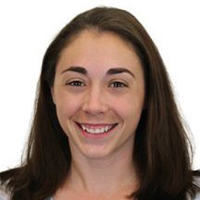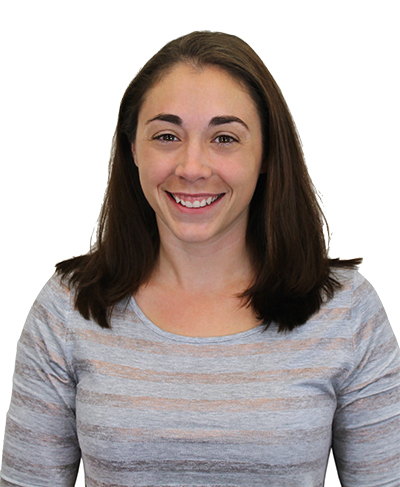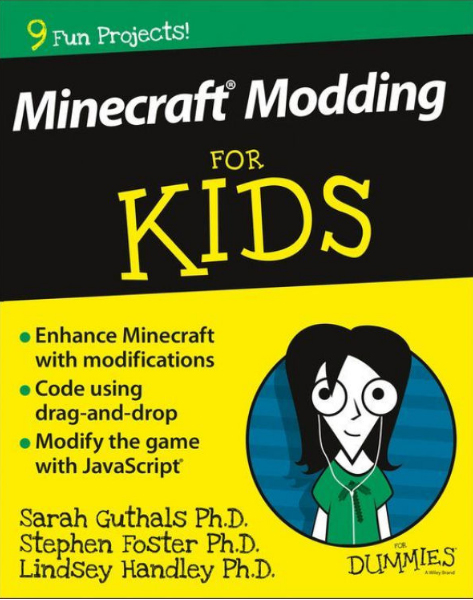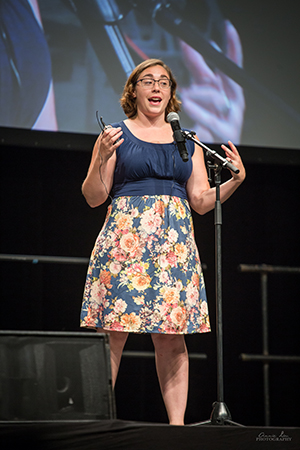
University of California San Diego alumna Sarah Guthals (BS ’10, MS ’12, Ph.D. ’14) completed all of her degrees in Computer Science, and as a student, she co-founded the educational computer-science startup ThoughtSTEM, and developed education games to help students learn the basics of programming before they get to college.

graduate of CSE (BS ’10, MS ’12,
Ph.D. ’14)
Now Guthals is expanding her sights to include everyone everywhere, who need to learn about computer science to remain relevant in the job market of tomorrow. So far, she has written three books in the "For Dummies" series, including "Minecraft Modding for Kids" (pictured below), "Modding Minecraft" and "Building a Minecraft City", and she plans to continue writing for the series in her spare time.
Guthals is secure in her knowledge of computer science, especially when it comes to teaching coding and other skills. Her confidence shows that she has come a long way from her early days at UC San Diego. She entered the pre-med program and thought she was prepared for a lot of hard work.
“I was working three jobs at the time to pay for school,” said Guthals in an interview with the Jacobs School of Engineering's Deborah Jude. “Part way into my time at UC San Diego, I was taking chemistry with 500-plus people, and I crashed.”
This is not for me, Guthals thought. “My friend told me to take a computer science class,” said Guthals. “I had no clue what computer science was. This was in the days of MySpace, and I didn’t even know how to edit my profile colors.”

Guthals took her friend’s advice and quickly fell in love with the subject. She switched majors and began working with computer science and engineering professor Beth Simon (who recently moved into the Education Studies department to work full-time on improving how computer science can improve teaching -- including the teaching of computer science). “It was such a great experience,” recalled Guthals. “I would go into the basement labs and say, ‘I can’t figure this out’, at 11 p.m., and three people would run over to help. It wasn’t like that in pre-med.”
Inspired by the excitement of fellow students, Guthals founded SAGE, a student organization for volunteer tutors. “As a tutor myself under Professor Simon, I developed new curriculum for an introductory computer science course,” said Guthals. Soon after, she applied for a five-year program combining a bachelor’s and a master’s degree, where she developed a passion for teaching kids to code. She then received an graduate fellowship from the National Science Foundation, which allowed her to continue her research in UC San Diego's Ph.D. program with Simon and computer science professor Bill Griswold.
“As the eldest daughter of a low-income single mother from South America (who is now a fourth-grade teacher), and someone who never truly grew up, my love for teaching, learning, and kids cannot stay buried for long,” said Guthals. “Combining that with coding is my passion. Watching kids be creative and make things happen that I could never even imagine, that is what inspires me to work hard every single day.”
As Ph.D. students in CSE, Guthals met co-founder Stephen Foster (Ph.D. '15), who was also interested in teaching kids to code. Together, they started coding classes on weekends. “Stephen suggested that we form a company,” remembered Guthals. “That’s when Lindsey Handley joined [with us] to form ThoughtSTEM in 2012.” All three were Ph.D. students at UC San Diego at the time (Handley in Biochemistry).
“We started with weekend workshops at UC San Diego,” said Guthals. “Soon, parents and teachers asked us to do after-school programs.”
The team participated in the NSF I-Corps program in 2013, for which the von Liebig Entrepreneurism Center at UC San Diego is now a site. They also took part in the mystartupXX accelerator program through the UC San Diego Rady School of Management. “Through I-Corps, we learned that our customers are kids, parents and teachers, and they all have different perspectives,” explained Guthals. “We discovered that the biggest thing kids wanted was to learn to mod Minecraft.”

front of thousands of students who
participated in SD Hacks 2016, the
student-run hackathon in October.
[Photo by Annie Liou]
Guthals and her co-founders created a software program called LearnToMod that teaches kids to program while playing a simulated version of Minecraft, the popular computer game. The software is essentially an interactive textbook that covers introductory programming concepts. Students begin programming in a block-based language and can move into coding in languages such as JavaScript. Soon after launching the software, Guthals and her co-founders developed a course for teachers. Currently, over 2,000 educators worldwide are using LearnToMod in classrooms.
Now, ThoughtSTEM is on the road to getting acquired, and Guthals has moved on to GitHub, whose software enables engineers to build and collaborate without having to be in the same physical location. Guthals’ role is to bring GitHub to kids under 13, in a new form. “GitHub is working on ConnectHome – bringing over 200,000 kids to the Internet in their home for the first time,” said Guthals, who will be helping develop curriculum, raise funds, and travel around the country to host Internet workshops for kids in lower-income areas.
Guthals continues to collaborate with Professor Simon, working for Github and writing "For Dummies" books, and she is an in-demand speaker and motivator. Guthals spoke at SD Hacks 2016, San Diego’s student-led hackathon, where she encouraged students to consider the many career paths that computer science offers. “There are many ways you can use [computer science] to contribute to our world," insisted the CSE alumna. "That doesn’t just mean working for a software company.”
When asked what advice she had for current students looking for a job, Guthals said: “Go to the career fair; I’ve had companies call me a year later. Tutor so that you get practice talking about engineering in a way people can understand. Just because you choose an area doesn’t mean you have to stay there – and it doesn’t have to be one-dimensional.”

